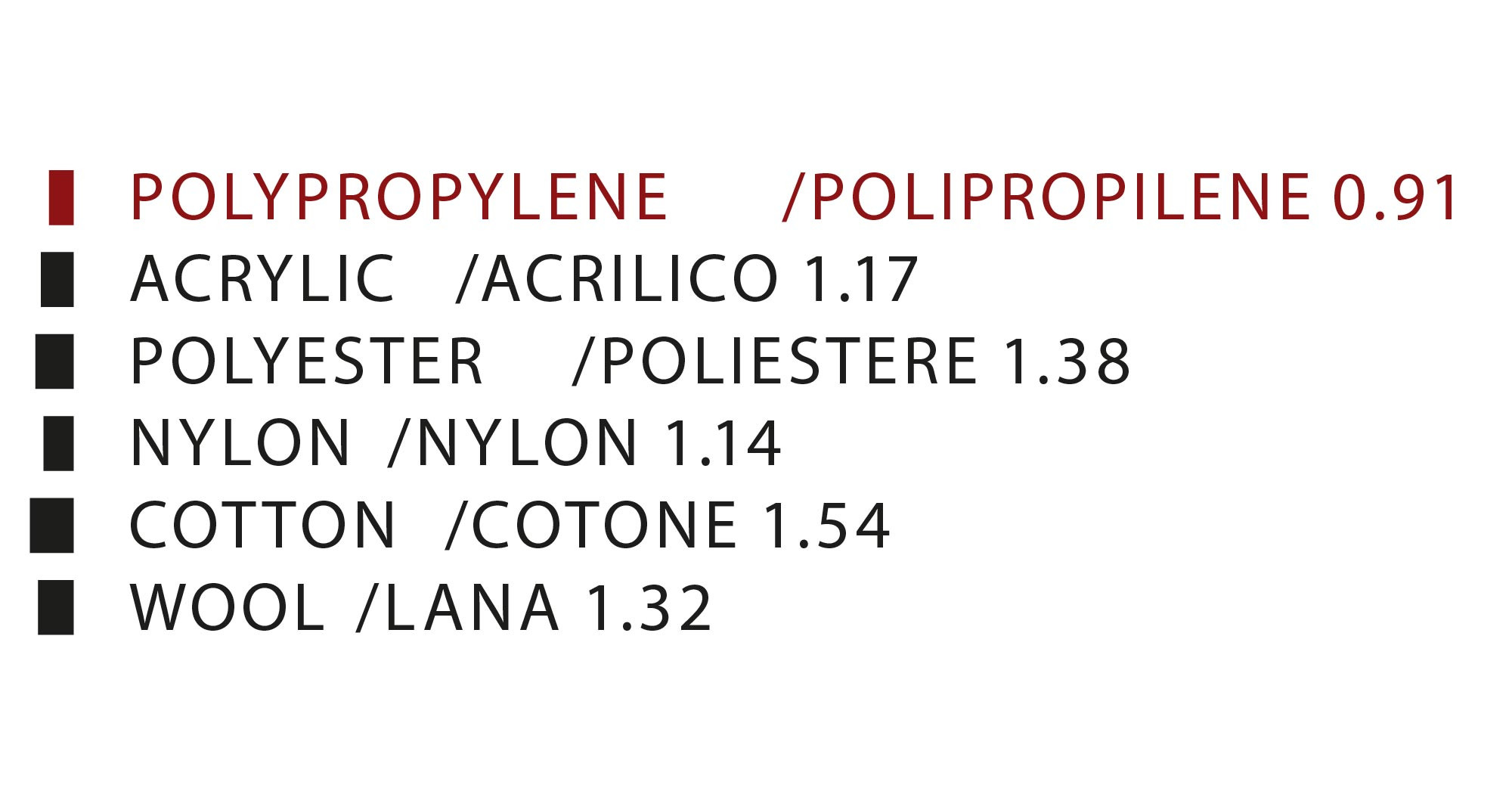
Propad, the light and warm polypropylene padding
Polypropylene fiber has the lowest coefficient of heat transfer and the greatest insulating power compared to all the other textile fibers normally used for insulations. In addition, it is from 20 to 30% lighter than those fibers, so that the garments made of polypropylene are warmer and lighter.
DRY
- Low ability to absorb liquids: absorption coefficient of liquids residual water content expressed as a percentage of the weight of the dry product.
- High vapour permeability: the high value of permeability ensures the rapid transfer of humidity through the insulation and thus the maximum transpiration.
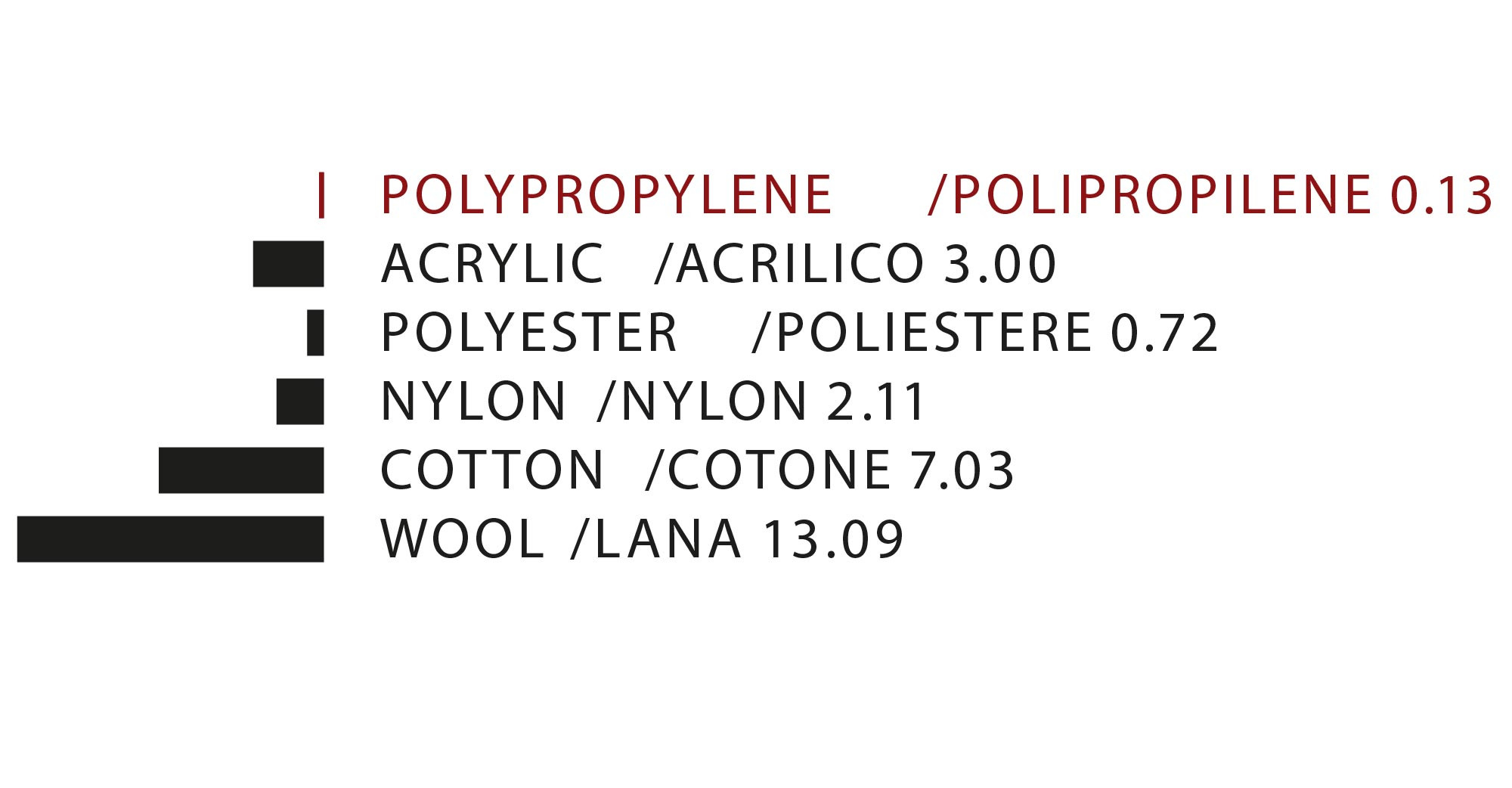
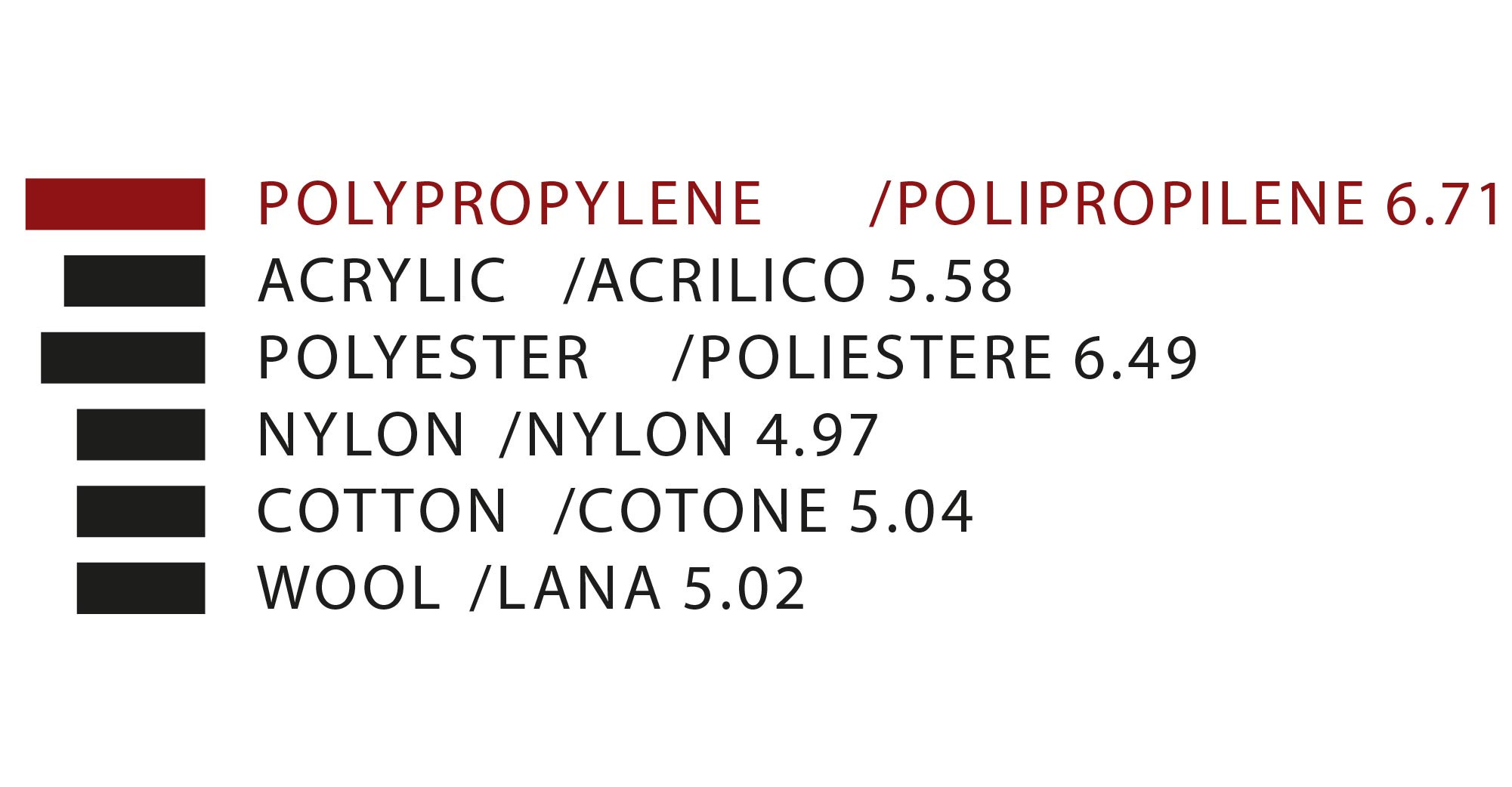
- Low heat transfer coefficient: The low value of the thermal transfer coefficient reduces (compared with other fibers) the loss of heat produced by the body when it is in a cold environment.
- High insulating power: The insulating power depends on the amount of air trapped in the fiber: polypropylene has the capacity of retaining heat similar to wool.
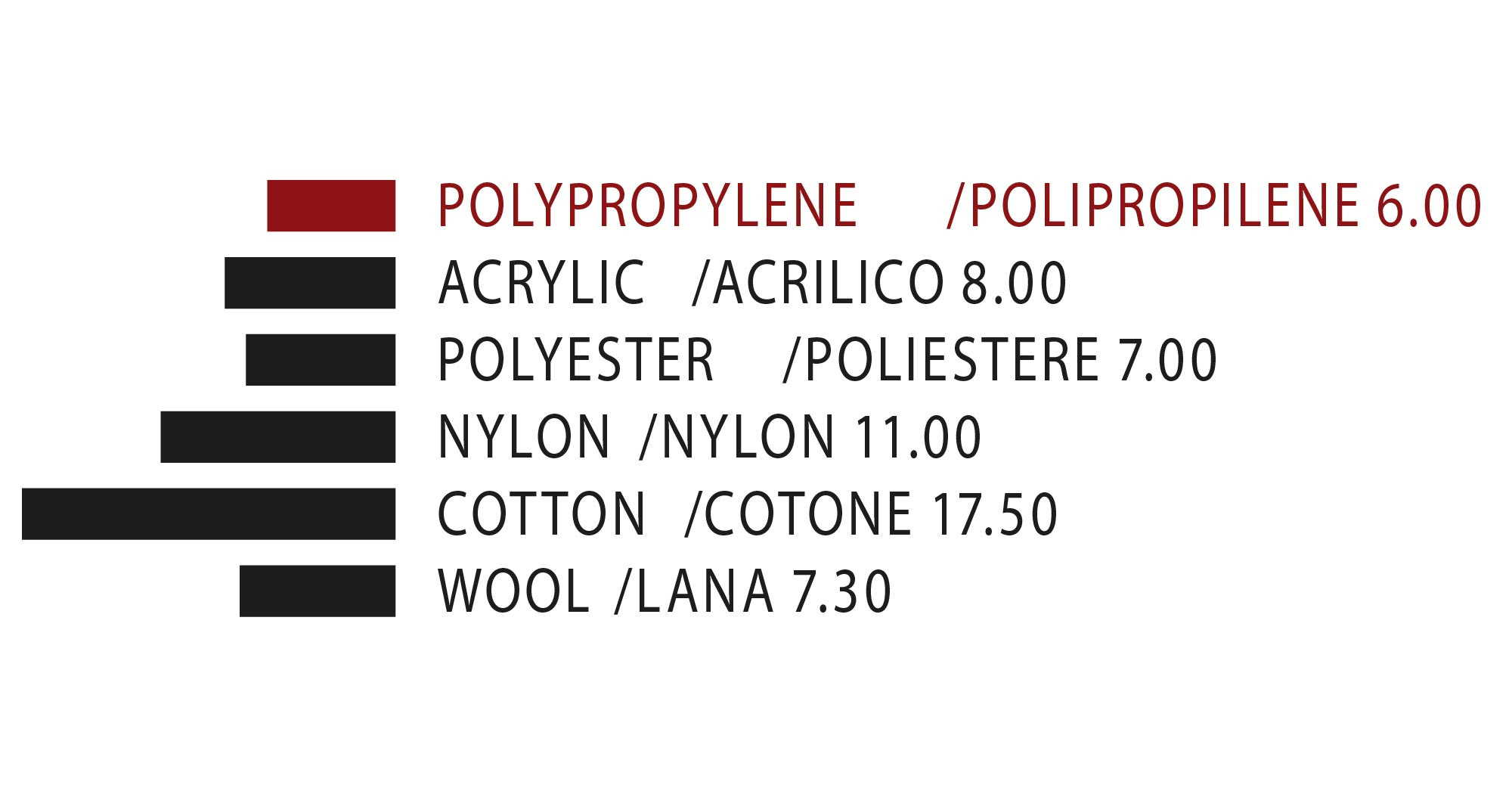
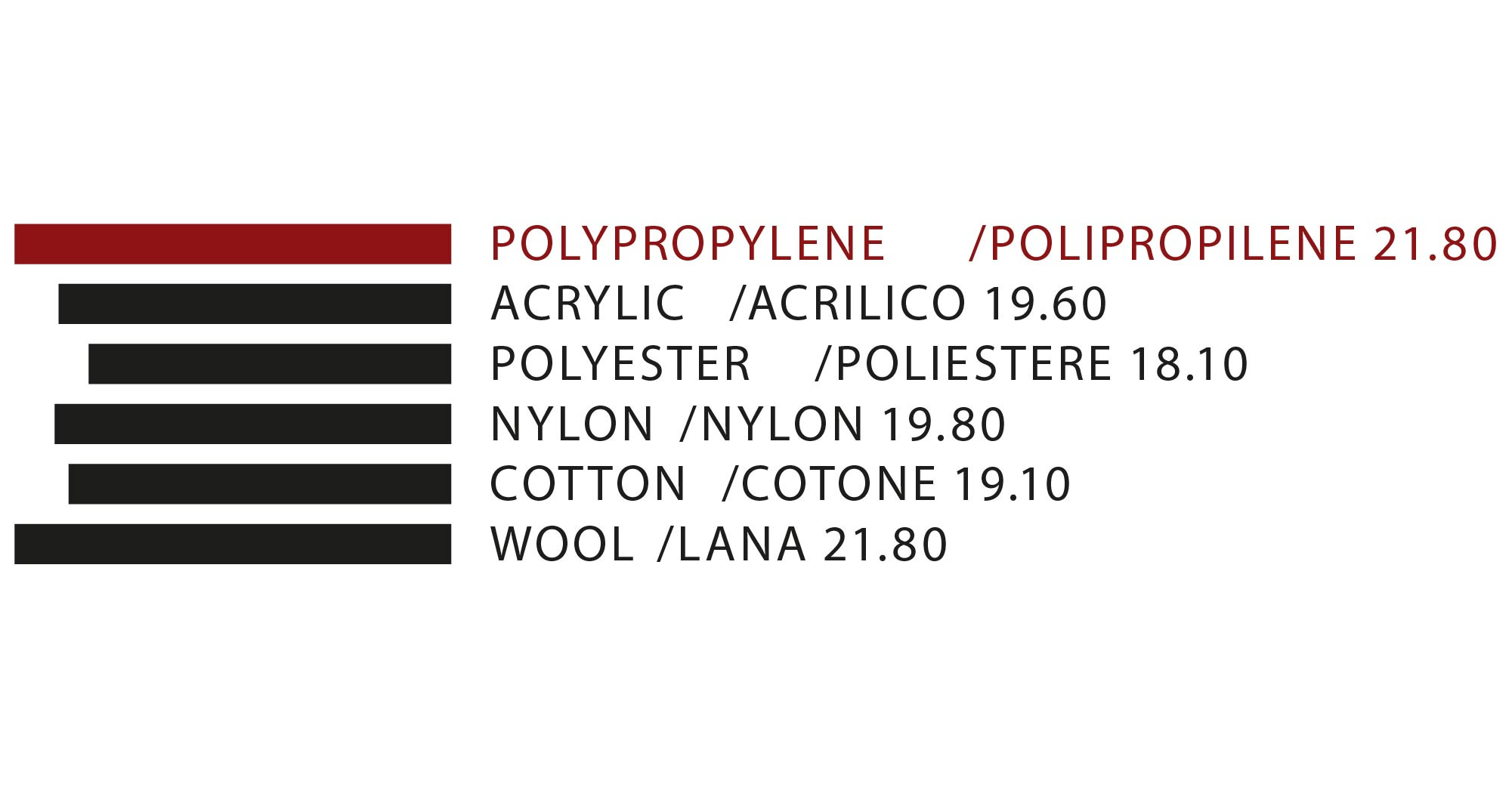
LIGHT
- Lightness: Polypropylene has a specific weight that is lower than other textile fibres.
